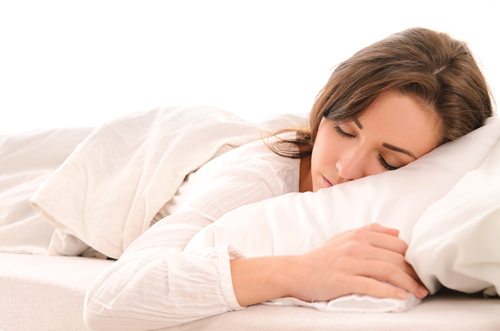
by Dr Audrey Tang
www.draudreyt.com
How many hours sleep do you actually need to function at your best? While research would suggest that on average adults need around seven to nine hours, in fact individuals need to find out what works best for them. We know that children need more sleep, as we age we need less, some people function very well on different patterns such as ‘biphasic sleep’ sleeping in two short periods and then napping in the day. ‘Power napping’ for some is also beneficial.
When it comes to sleep, I would always say try to get the number of hours that works for you! And if that can’t be at night, try and find some nap time in the day.
A word about our circadian rhythms
On average, a person’s circadian rhythm – colloquially the ‘internal body clock’ – naturally rises and falls in energy within a 24 hour period. It responds very well to light, especially natural light. If it is dark, then our brain signals to release melatonin which makes us sleepy – hence why when a flight crosses time zones the aeroplane lights are dimmed or brightened to try and get your body as adjusted as possible to your arrival time. When there is light – especially natural light – the melatonin stops. This means that if you wake with natural daylight outside, it can be difficult to return to sleep because your internal processes are already signalling that it is time to rise. As such blackout curtains can help in the summer months.
How does the body react if we don’t get enough sleep?
Our bodies have trouble adjusting when we have not slept enough, and the complexity of life can cause us to disrupt (or ‘override’) our preferred circadian rhythm.
If we are sleep deprived this can result in:
• Irritability
• An inability to think rationally
• An inability to focus
• A lowered immune system. As such this can cause further problems in the context of work and relationships.
There has also been research on architectural students which found that when sleep deprived their written examination performance remained constant, but those that lacked sleep performed significantly less well in their presentations.
Sleep is also our body’s opportunity to repair and plays a role in regulating the production of some hormones important for health. If we do not sleep enough we produce more ghrelin – the hormone which signals hunger which can cause us to seek high carb, high sugar foods because we instinctively know they will give us energy. Enough sleep means we produce less ghrelin and more leptin (which supresses hunger).
Furthermore if we are not sleepy we have a greater capacity to make healthy choices on food and activity as we tend to be more focused, as well as be at less risk of injury when exercising or doing anything physical or manual.
BUT the body is adaptable!
We do tend to sleep for longer once we do fall asleep, after a period of deprivation – and this can be irrespective of external cues. Therefore, while the circadian rhythm is similar to a preferred internal thermostat, it can be over-ridden, but it can also be trained ie. it is possible for someone who has for many years always slept eight hours to learn to feel rested and function efficiently on six if this is established as a habit. Similarly it is possible to adjust to shift work or for parents whose sleep is disrupted with a newborn – it is possible to adapt for a certain time, and function effectively on a new sleeping pattern. Research on shift workers finds sleep can be improved by wearing sunglasses (to keep the daylight moderate) when returning home after a shift, and by having blackout curtains in the sleeping area…perhaps parents can make similar adaptations temporarily.
Our body is very adaptable, and what is ‘best’ in terms of sleep – is what is ‘best’ in terms of our need physically and contextually.
Practical tips to help with sleep
1. If possible – have a bedtime routine:
• Always have a glass of water by your bed.
• Keep a writing pad by your bed for when you wake in the middle of the night and need to remember something – write it down (try not to open your phone).
• Plan for the next day if you need to (clothes, lunch prep and so on).
• Stop drinking caffeinated drinks about six hours before bed – and instead have a camomile tea, or warm water, or even warm milk.
• Go to the toilet.
• Set your alarm.
• Come off social media/your smartphone an hour before bed – leaving an ‘out of office’ message if necessary.
2. Try some deep breathing
Simple centred breathing (breathing in for four, holding for two, and out through the mouth for six) whilst listening to nature sounds, gentle music, or even a relaxation podcast can be the final step for a restful night.
3. Will exercise – or a relaxing cool down – help?
Sometimes people find exercising at night helps (others don’t – heed your body’s response to whatever you try), and after exercising, a bath tends to be more soothing than a shower (unless it feels ‘too long’ for you).
Importantly: if you find yourself waking in the night and struggling to return to sleep:
Change context! Get up and do something (ideally not on the phone or computer) such as read a book. It’s best not to associate the bedroom with the feelings of stress that you cannot get to sleep.
Dr Audrey Tang is a chartered psychologist, wellness expert and author of The Leaders Guide to Resilience. www.draudreyt.com











